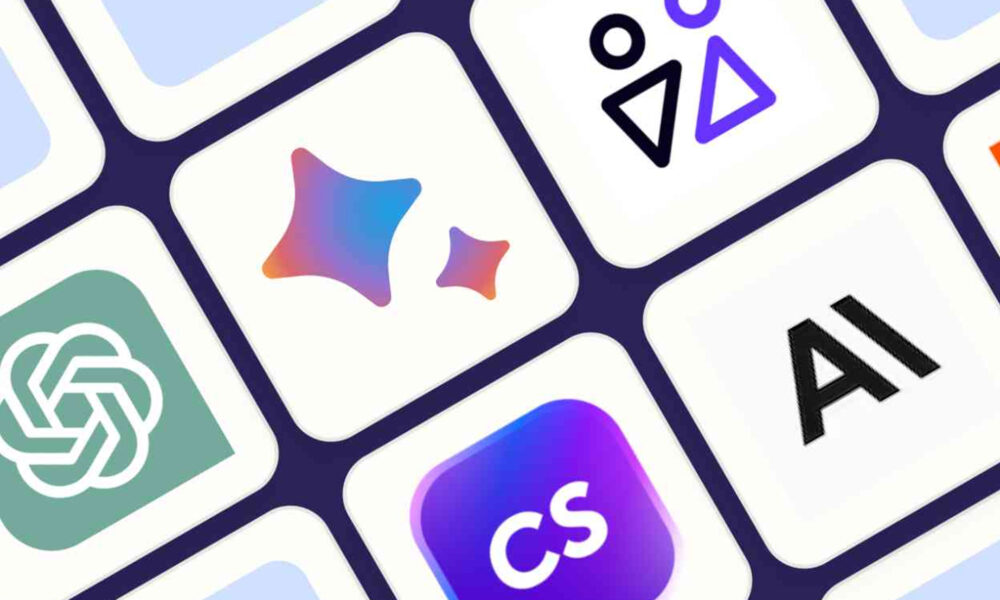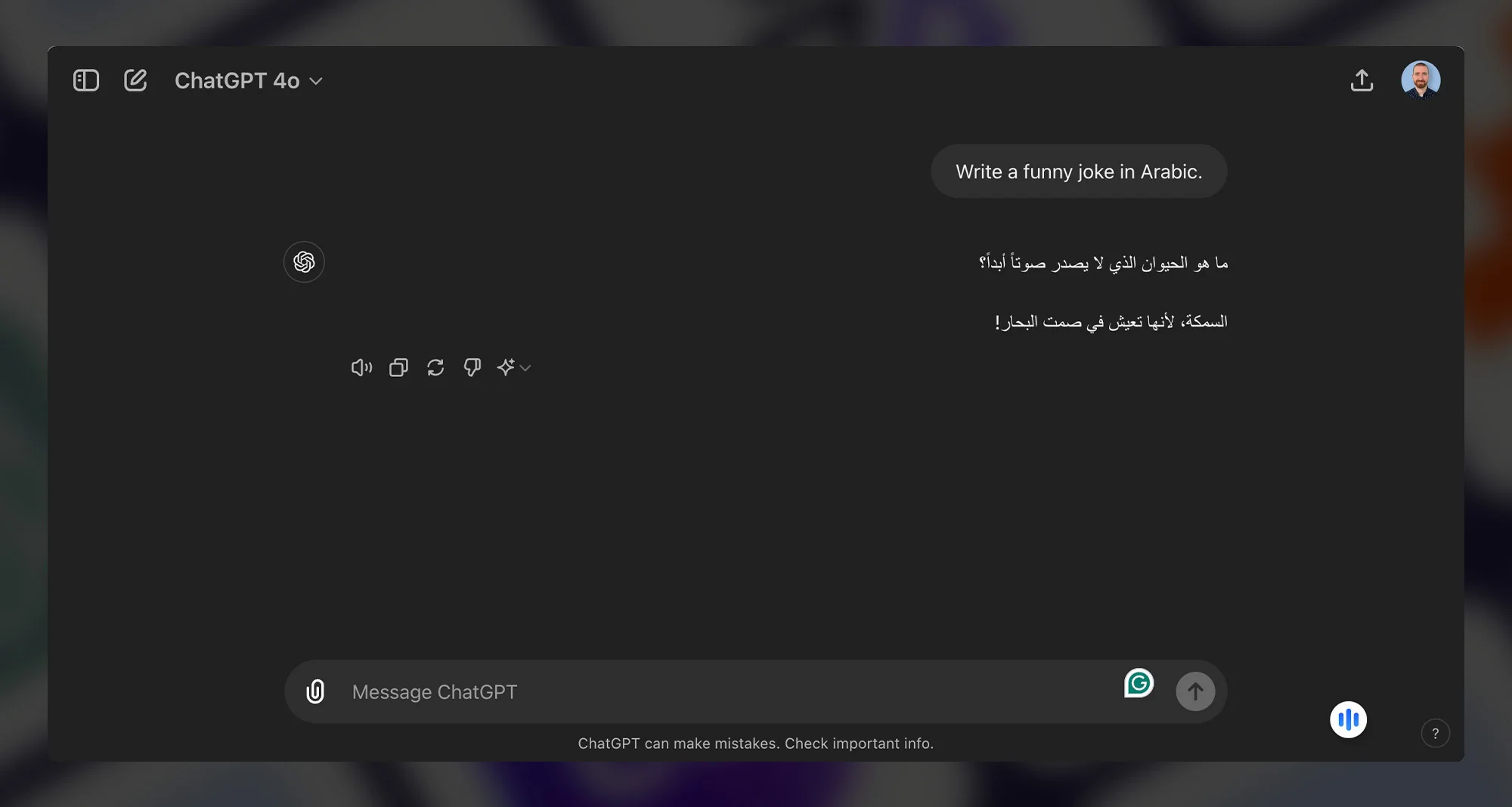Guides
Top Free AI Chatbots Available In The Middle East
Discover the best free AI chatbots that are currently available to users in the Middle East so that you can experience the world-changing technology.

Large language models (LLMs) like ChatGPT are taking the world by storm, offering (mostly) accurate answers to a vast range of questions. While many of these cutting-edge AI models are developed by Western companies and trained predominantly on English data, their applications extend far beyond the English-speaking world.
We’ve done the research for you and compiled a list of the top free AI chatbots available in the Middle East. Whether you’re looking for a personal assistant to help you manage your daily tasks or a customer service chatbot to improve your business operations, we’ve got you covered.
#1- ChatGPT

🌍 Availability: Bahrain, Egypt, Iran, Iraq, Israel, Jordan, Kuwait, Lebanon, Oman, Palestine, Qatar, Saudi Arabia, Syria, Turkey, United Arab Emirates, Yemen
🔣 Arabic Input: Yes
💬 Arabic Output: Yes
Developed by OpenAI, one of the most talked-about companies in the world today, ChatGPT has brought the transformative power of large language models to the masses since its release in November 2022. Even though it’s not OpenAI’s first chatbot, ChatGPT has captured the imagination of users worldwide with its ability to engage in natural language conversations and assist with a wide range of tasks.
Even in its free version, ChatGPT offers plenty of capabilities for users to enjoy, including full access to GPT-3.5 and limited access to GPT-4o, OpenAI’s latest and most advanced multilingual, multimodal model. At the time of writing this article, GPT-4o is the best-rated model in existence, so the fact that you can use it for free for a limited number of times within a three-hour window is pretty amazing.
Earlier this year, OpenAI introduced voice chat capabilities to free users, meaning if you’ve ever wanted to interact with an AI using voice commands, now you can do so without any cost. Voice interactions with ChatGPT offer a more intuitive and natural way of communication, bridging the gap between human and machine interaction, and then come in handy when driving, cooking, and doing other activities that make it inconvenient or impossible to type.
Pros:
- The best-rated AI chatbot today
- Can provide accurate and helpful responses to a wide range of questions
- Free access to a robust set of features
- It’s easy to use, with a simple and intuitive interface
Cons:
- Usage limits
#2- Mistral AI
🌍 Availability: Everywhere
🔣 Arabic Input: Yes
💬 Arabic Output: Yes
Founded in April 2023 by a team of former employees from Meta Platforms and Google DeepMind, Mistral AI has quickly positioned itself as a significant player in the realm of artificial intelligence. As a French company dedicated to democratizing AI technology, Mistral AI focuses on developing open-source large language models accessible through its web-based chat interface.
The models vary in scale and specialization — from heavy-duty processing with the Large model, known for its top reasoning capacities, to the Small model, designed for fast and cost-effective interactions. They also offer Codestral, tailored specifically for coding purposes, and Next, a prototype model trained for conciseness and efficiency.
Mistral AI currently doesn’t offer any paid tier, which means that free users have access to everything the company offers. Usage limits do exist, but they are dynamically adjusted based on demand, so you may not even hit them.
Pros:
- Access to a range of large language models
- No paid tier, so free users have access to everything
- It’s easy to use, with a simple and intuitive interface
Cons:
- Usage limits
- Relatively new player in the AI market
#3- Google Gemini
🌍 Availability: Bahrain, Egypt, Iraq, Israel, Jordan, Kuwait, Lebanon, Oman, Qatar, Saudi Arabia, Syria, Turkey, United Arab Emirates, Yemen
🔣 Arabic Input: Yes
💬 Arabic Output: Yes
Previously known as Bard, Google Gemini is a powerful large language model developed by Google AI. With the free version of Google Gemini, users have access to the 1.0 Pro model, which integrates seamlessly with Google apps that you already know and use, such as Gmail, Calendar, and Docs. This makes it an excellent choice for those who rely heavily on Google products for their daily tasks.
However, compared with GPT-4o and Mistral’s Large model, the free version of Gemini is much worse at following instructions closely. On the other hand, Gemini offers a significant advantage in terms of speed. Additionally, Google doesn’t seem to be actively enforcing usage limits on the free tier, so you can use it as much as you want without worrying about hitting a usage cap.
Pros:
- Integrates with Google apps
- Fast and no real usage limits
- It’s easy to use, with a simple and intuitive interface
Cons:
- Doesn’t follow detailed instructions well
#4- Claude
🌍 Availability: Bahrain, Cyprus, Egypt, Iraq, Israel, Jordan, Kuwait, Lebanon, Oman, Palestine, Qatar, Saudi Arabia, Turkey, United Arab Emirates, Yemen
🔣 Arabic Input: Yes
💬 Arabic Output: Yes
Claude is a family of AI models developed by Anthropic PBC, a US-based artificial intelligence (AI) startup company founded in 2021. The company’s mission is to research and develop AI technology that benefits the public. Anthropic was founded by former members of OpenAI, Daniela Amodei and Dario Amodei, and has since made a name for itself in the AI community.
Free Claude users can access the Sonnet model, which is designed for natural language processing tasks such as text generation, translation, and summarization. Sonnet comes with a daily messaging limit that’s dynamically adjusted based on demand and reset every morning. Unfortunately, the limit can be quite unpredictable in practice, allowing you to chat extensively one day and then stopping you after a few messages the next one.
Pros:
- Free access to the Sonnet model
- Daily message limit is dynamically adjusted based on demand
- It’s easy to use, with a simple and intuitive interface
Cons:
- Unpredictable daily limit
#5- Local LLMs
🌍 Availability: Everywhere
🔣 Arabic Input: Depends on which model you choose
💬 Arabic Output: Depends on which model you choose
Local LLMs are a breed apart from the cloud-based solutions we’ve discussed so far. Instead of relying on powerful remote servers, these models run entirely on your own computer hardware. Examples include Llama 3, Phi 3, and Gemma.
One of the biggest advantages of local LLMs is that they are uncensored. Another advantage of local LLMs is that they can be customized to your specific needs. For example, you can fine-tune the model on your own data, allowing it to better understand and generate responses that are specific to your industry or use case.
However, there are also some downsides to using local LLMs. The biggest challenge is that they can be more difficult to set up and maintain than cloud-based AI chatbots. You’ll need to have the right hardware and software, such as Ollama or LM Studio, to run the model, and the performance of your hardware directly influences the performance you can expect.
Pros:
- Complete control and customization
- Uncensored and unrestricted by content limitations
- Arabic-specific models available
Cons:
- More difficult to set up
- Performance depends on how powerful hardware you have
- Can’t match leading cloud-based models
Conclusion
The Middle East region has access to some of the best free AI chatbots available in the market. From ChatGPT’s natural language processing capabilities and Mistral AI’s range of large language models to Google Gemini’s integration with Google apps and Claude’s focus on ethical AI, each chatbot has its own unique strengths and weaknesses. Local LLMs also offer a viable alternative for those who prefer to have complete control and customization over their AI models. Ultimately, the best AI chatbot for you will depend on your specific needs and preferences.